Around the world, there are a dedicated number of activists and conservationists out there fighting for our right to a sustainable world. Even with the odds stacked against them. Each year we celebrate World Environment Day and World Oceans Day but we should think about our oceans throughout the year.
When we were sent a screening of the film “Blue” we weren’t sure if we were ready to watch it. We shied away from Shark Water and Blackfish because we couldn’t bear to see the heartbreak and suffering of sharks and dolphins being slaughtered or forced into captivity. But now is not the time to shut your eyes and avoid the suffering in the world.
Table of Contents
How Can we Save the Oceans?
Now more than ever, we need to take responsibility for our oceans and environment. We can no longer rely on our governments to act responsibly and impose laws to make a change. It’s up to the human race to act with dignity and grace to finally come together and save our oceans, save our wildlife and save the planet. As the World Travel and Tourism Council made a point of questioning last year, “Is it Too Much to Ask for a Sustainable World?”
To skip directly to 10 Ways to Save the Oceans, Click Here
Oceans have no borders, and when overfishing, pollution, and the accumulation of plastic affect us all. No matter where you are in the world, you are affected by the ocean. We have barely begun to explore the ocean. We barely understand it.
As shark conservationist Madison Stewart states in the film Blue “The fate of so many species will be decided by those of us alive today.” Read more: 14 Best Travel Charities to Support This Giving Tuesday
Now is the time to make the right choices for our oceans.
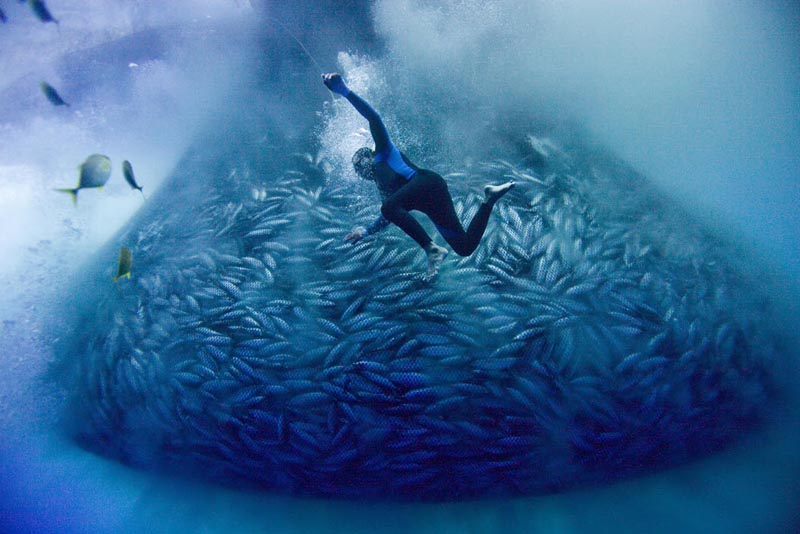
The film opens with narration by freediver Lucas Handley discussing his love for oceans, but also sharing the grave situations our world’s waters are in. He states “In My lifetime half of all marine life has disappeared. This is a Hidden crisis falling on silent shores”
By 2050 there will be more plastic in the sea than fish!
Did you know? 70 million sharks are killed annually simply for their fins and limbs? They are tossed back into the ocean to suffer and die or as in Lombok, Indonesia where their main source of income is fishing, the remains of sharks are ground for dog and pig food after their fins have been shaved off to support the growing demand in Singapore, Hong Kong, and China.
And Even More Disturbing…
It is estimated that 1/3 of fish sold in supermarkets around the world are illegally caught.
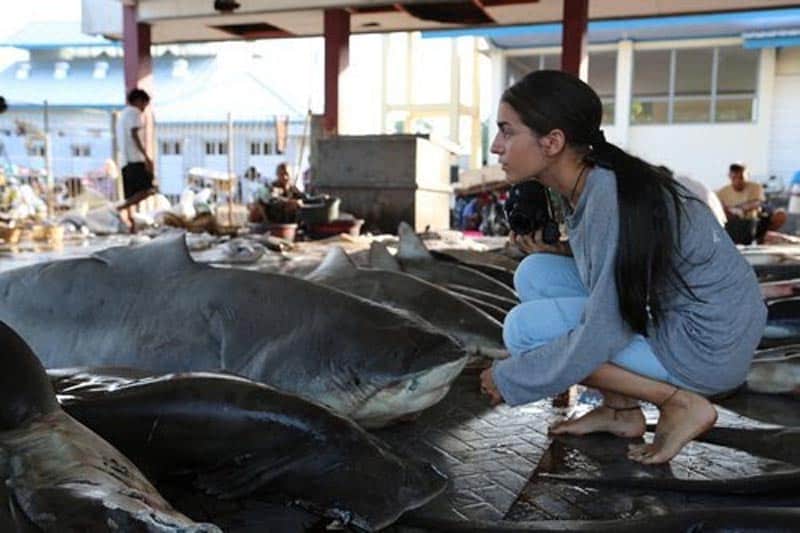
Illegal Fishing and Unsustainable Practices in our Oceans
In developing countries, villagers rely on fishing for their livelihoods. But there is no conservation or plan to keep their oceans sustainable. As fishing stocks deplete, fishermen from Indonesia and the Philippines venture farther miles out to sea fishing illegally in other country’s waters. They run up to 50 km of fishing line creating an unforgiving underwater slaughter. These nets scoop up every living thing.
When they make their catch, the illegal fishing nets are cut and left to float in the sea wreaking havoc on marine life. Turtles are most affected by nets as they swim and feed in currents that carry the nets to the shore.
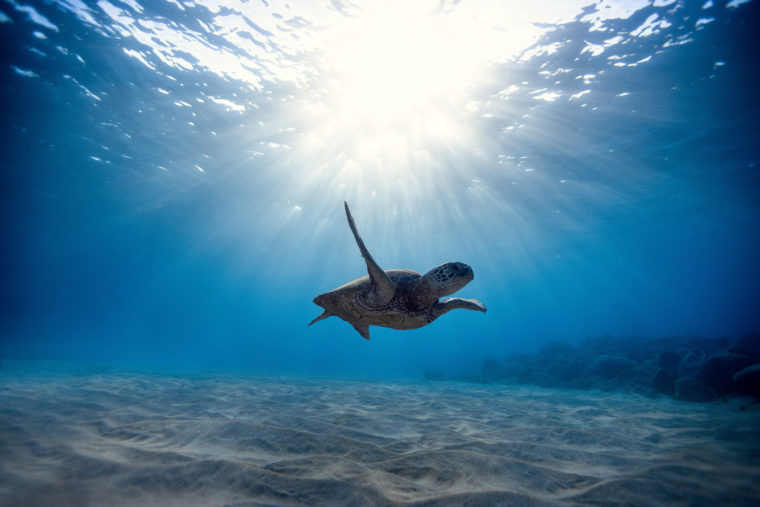
They have no chance and are often dragged for many days before finally drowning. Northern Australia sees the brunt of this illegal fishing coming out of South East Asia. The nets wash up on their shores tangled with turtle carcasses and other fish.
Hawaii has seen some of the worst effects of plastic waste in the world. It was once a pristine white sandy beach but now it is considered the world’s trash can with tons of trash from around the world washing up on its shores every day.
Volunteers cannot keep up with the waste clearing away 1 ton of garbage each month.
The Oceans are Changing
As the underwater icon and diving veteran, Valerie Taylor states in the film, “The marine world I knew 40-50 years ago, no young person today will ever see it.” Watching old underwater footage of the abundance of life and color on the reef is disturbing. In the 21 century, our reefs are dying. There is catastrophic bleaching of global reefs occurring right now.
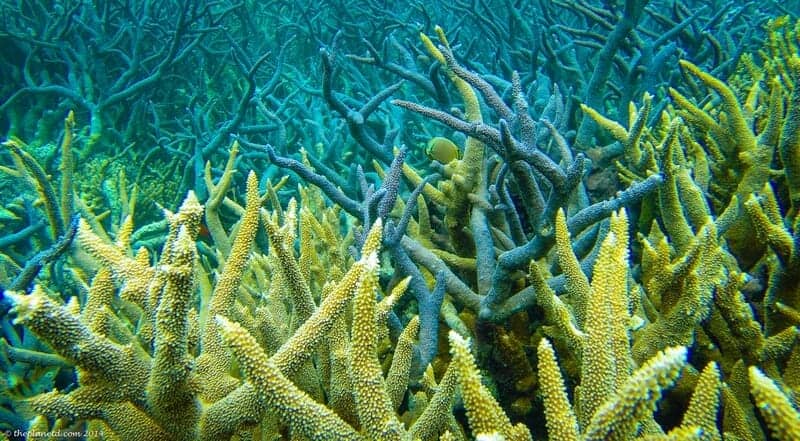
As the ocean temperatures rise to record-breaking temperatures, the reefs suffocate and die due to the water warming for too long. Mix in pollution and storm damage and we are losing our reefs at an alarming rate.
Marine Birds are Suffering too
It’s not only affecting the sharks and other fish, marine birds are suffering too. I have never been much of a bird watcher and have often overlooked marine birds when traveling.
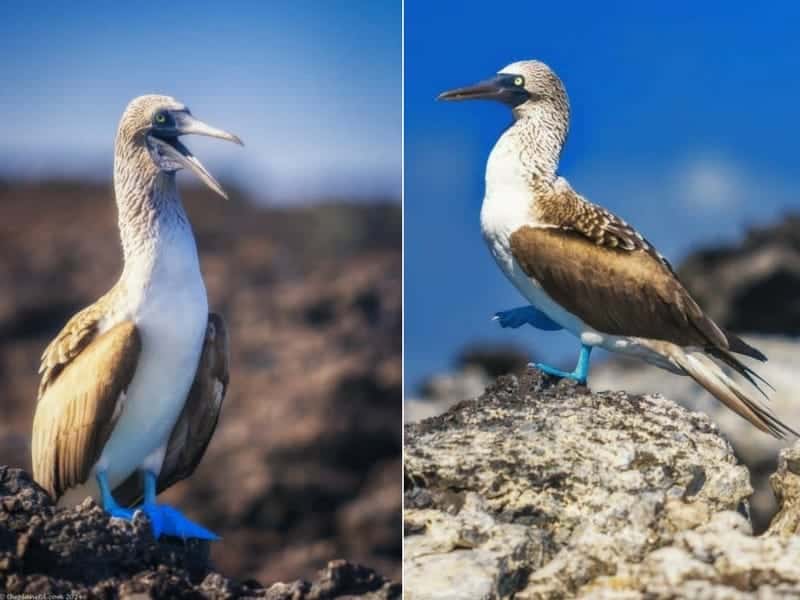
But it was this segment during the film that I first teared up. Watching Dr. Jennifer Lavers work chunks of plastic out of the throat and stomach of a young bird is heartbreaking. She states that the mother birds are doing what they think is right gathering squid beaks, but instead are feeding their hatchlings bottle caps, pen lids, and other painful plastic items.
Plastic in the Ocean is Killing Marinelife
Today 100% of birds have plastic in their stomachs. In one bird they showed in the film, she found 275 pieces of plastic in its stomach. That is equivalent to 10 kilos of plastic in a human.
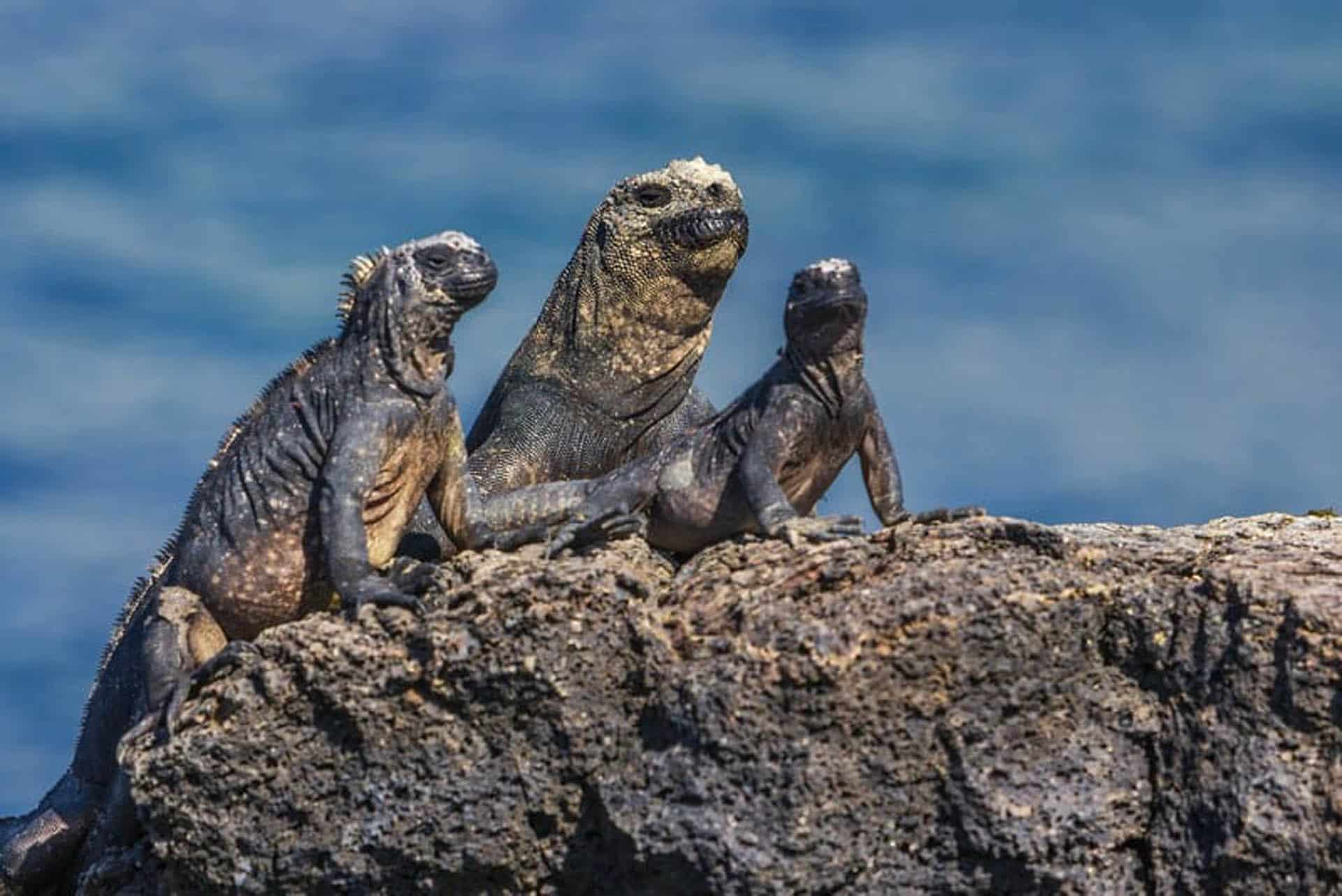
Each Year 1 Million seabirds die because of plastic.
And it goes right down the food chain. Even microscopic plankton is filled with plastic. It starts with the tiniest specks on earth spreading plastic to the largest animals in the world. Whale sharks and baleen whales eat plankton and krill and these species are poisoning fish right up the food chain.
10 Ways You Can Help Save the Oceans
We can save our oceans and the life it supports, but it requires action and it is time for everyone to take action. Here are ways to help save our oceans.
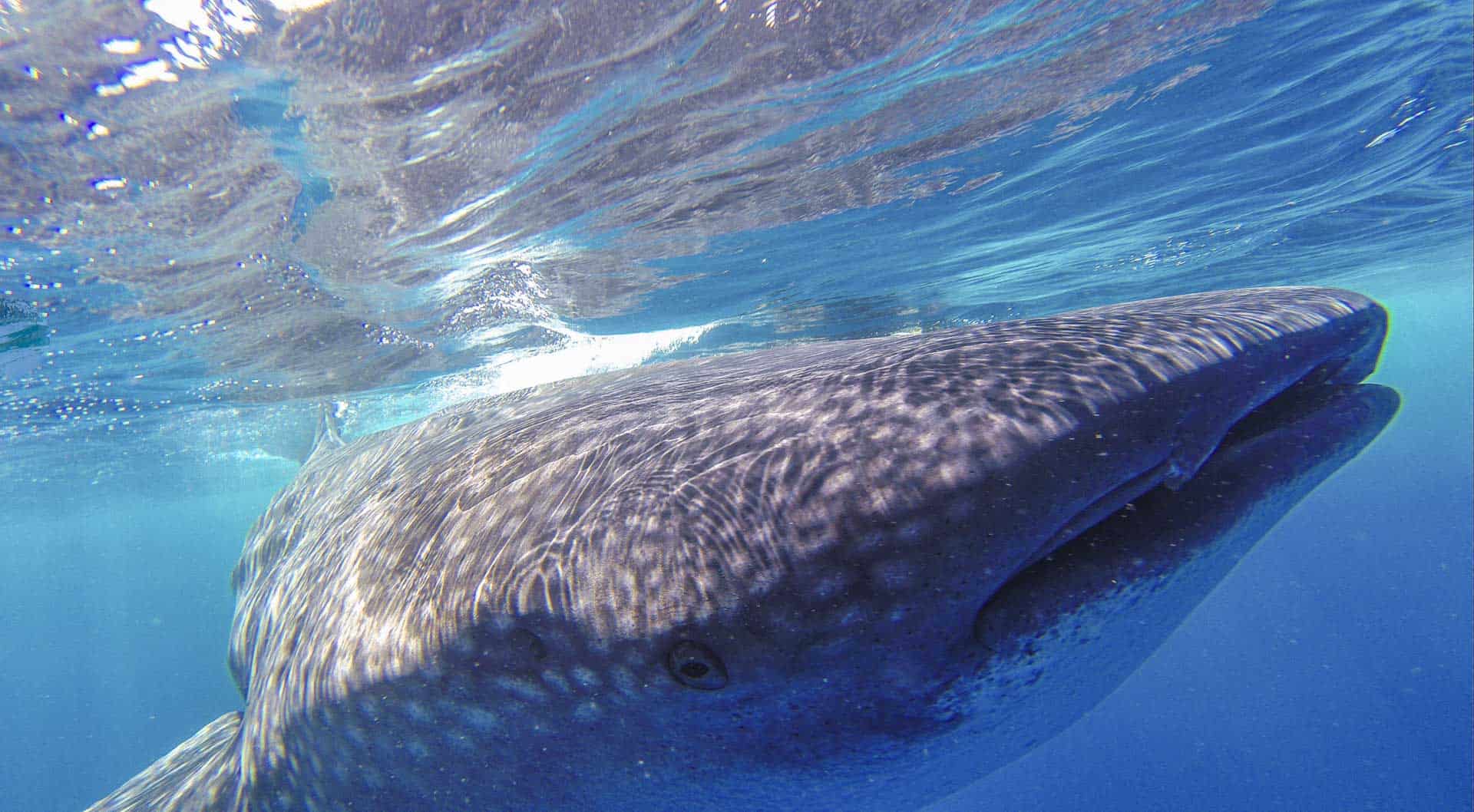
1. Stop using one-time use plastic.
The EU and UK are considering banning all single-use plastic and Canada is finally discussing the banning of single-use straws. When you order a drink at a restaurant say no to the straw.
Carry a reusable bag instead of plastic bags when shopping.
Did you know 50% of 1 million plastic bags are used around the world every minute and of all the plastic we use is a one time use and then throw away?
2. Stop drinking bottled water
When traveling stop buying bottled water and instead invest in a Steripen.
A Steripen costs less than $100 and purifies tap and river water in 30 seconds. When at home, instead of buying bottled water, use a refillable bottle to take with you.
If you are worried about quality, use a Brita to filter your tap water.
3. Pick up Garbage When you Are at the Beach
Follow the lead of The Australian non-for-profit organization Take 3 and pick up three pieces of rubbish whenever you leave the beach.
Imagine if everyone did that? Our oceans would be a much better place.
4. Cut Down on Seafood
Many fisheries are poorly managed. As we learned from the film Blue, 1/3 of all fish sold in supermarkets are illegally caught.
When you do eat fish, choose options that are not overexploited and have a healthy stock.
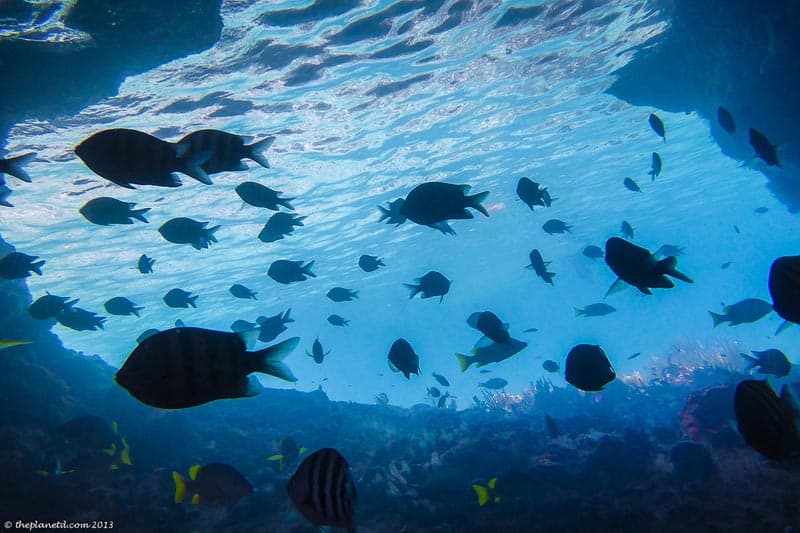
You can check out this website to see what species of fish are sustainable.
5. Get out and Vote
We all worry about our wallets when voting, but it’s important to think about the future and the state of the environment.
Choose a government in your next election that cares about conservation and will make a plan for the future.
We need to set aside more marine sanctuaries. While 20% of the world’s land is set aside for conservation, less than 5% of the ocean is protected.
To make a change, we need more marine sanctuaries.
6. Watch the Film Blue
For one night only, BLUE is screening throughout Canada on Thursday, June 7, at 7:00 pm. (Calgary at 8:00 pm)
You can reserve seats online. See where screening is happening near you at Demand Film Ticketing.
7. Support Conservation Efforts
Join the movement and become an Ocean Guardian. Visit the Blue website and see how you can become an Ocean Guardian look for other ways to help save the oceans.
There are many excellent organizations out there focusing on ocean conservation that you can support too.
We were just in California and saw the amazing work the Monterey Aquarium has done over the years.
Greenpeace is always working hard to protect the oceans and Blackfish is another project working to stop illegal fishing practices around the world.
Full a complete list ScubaDiving.com has a comprehensive list of nonprofits to support.
8. Avoid Cosmetics with Microbeads
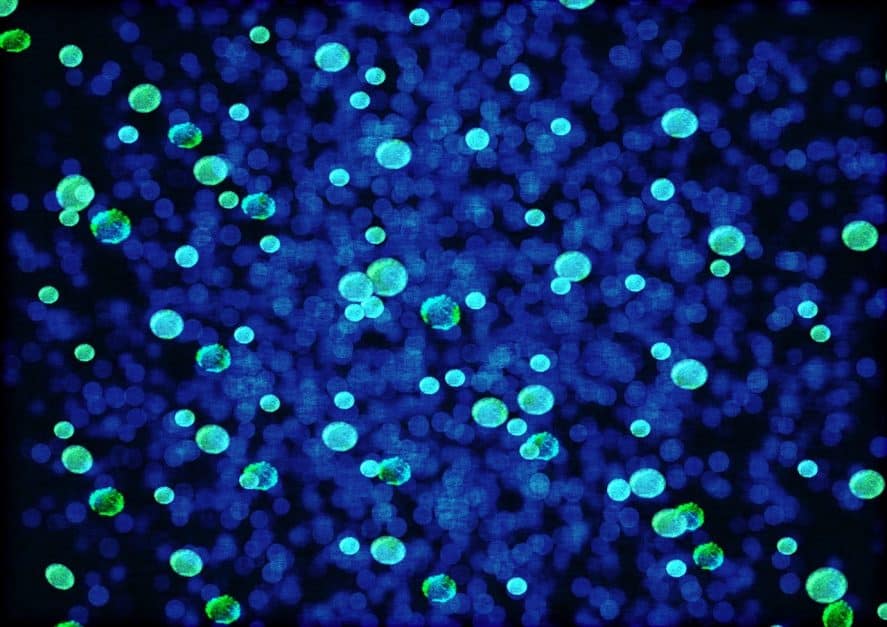
More and more cosmetics contain microscopic plastic beads to be used as scrubbing agents, emulsifying agents, and cheap fillers.
Face cleansers, body washes, toothpaste, and deodorants can contain Microbeads from brands like Aveeno, Neutrogena, Colgate, and more.
- Get this app – Beat the Microbead to see if the product you are buying contains microbeads.
- Check out this article in Wired as to why Microbeads are so harmful to the environment.
9. Skip Buying Items that Harm Wildlife
This should go without saying, but people still purchase items made of endangered species.
Especially at local markets when they can’t be sure of regulations. When shopping, be sure to avoid jewelry made from coral, shark’s teeth, or turtle shells.
10. Spread the Word
World Oceans Day has to continue throughout the year. It is amazing that we are all coming together for one day, but everyone needs to continue making a change.
Tell your friends and family about what you have learned. Put pressure on your local governments and local businesses to stop handing out plastic bags.
Lead by example and drink from reusable cups, turn down the use of straws and carry canvas bags for your shopping.
Share on social media and let us know how you will make the pledge. I know we are going to work harder to help save our oceans and reduce our footprint on the environment. What are you going to do this summer?
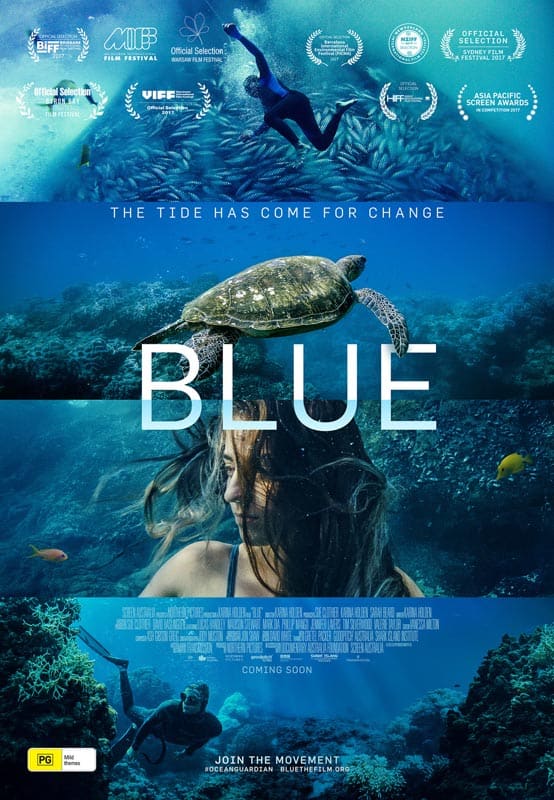
The Planet D is not affiliated with the film BLUE but we did love the movie and its message. They sent us a link to watch it and we were so inspired by the coverage and motivated to get the word out about the state of our oceans, we felt compelled to write about it. You can reserve seats online and see where a screening is happening near you at Demand Film Ticketing.
Take the Pledge and become an Ocean Guardieand at https://bluethefilm.org/take-action




very informative article you have shared, hope reader read and apply in life. Thanks for sharing great message.
Nice article,it’s too late still we not bothering about the environment and the consequences that we need to face in coming days.We have completely exploited our land and water and we are the only cause for that.By reading this blog we will understand how other species including humans are effected and the action we need to take to support our nature.Thanks for sharing such a useful article.
Firstly you are doing an amazing job..and we must all get involved if we want our human race to enjoy our beautiful blue planet for years to come. It makes me so so sad to see all of our amazing sea life being abused and killed for profit and gain, this is wrong on so many levels, we have the most amazing planet full of beautiful animals plants creatures fish etc etc…come on people it’s time we all joined in the conservation and protection of them.
I have four children and have nurtured them to appreciate life and anything that is alive from an ant to a tree and from fierce predators to goldfish and coral…I have taught them that every living thing has a right to be part of this earth just as we humans have tell your children your parents your grandparents there is no age limit we all need to do our bit now and always ??????????????
Great read, The oceans are so important to our daily lives and people dont realize how amazing and import it is.
The corals of the great barrier reef produce a high amount of oxygen that we require to live.
Thanks for this article. We all should take care of nature, save water and plant more trees for the better environment
As a native Floridian, I know how important is is for all of us to use our oceans and beaches wisely, protecting them from those that won’t. I apologize to all on earth that our electoral process produced President tRump, who must be fought on so many fronts to protect our planet. For now, there is no Planet B.
Thank you for sharing such a nice blog keep sharing.
Your photos inspire me, thanks for writing this kind of article
Wow, this is a fantastic post. love that you give ideas on how we can help save our oceans. You shared awesome pictures and information!! Thank you so much for writing it..
keep doing great work!
Hi, i leave in French and i hope that one day the human understand that the ocean is so important for the life. Thanks for this article